Publications
Articles, publications, books, tools and multimedia features from the U.S. Institute of Peace provide the latest news, analysis, research findings, practitioner guides and reports, all related to the conflict zones and issues that are at the center of the Institute’s work to prevent and reduce violent conflict.
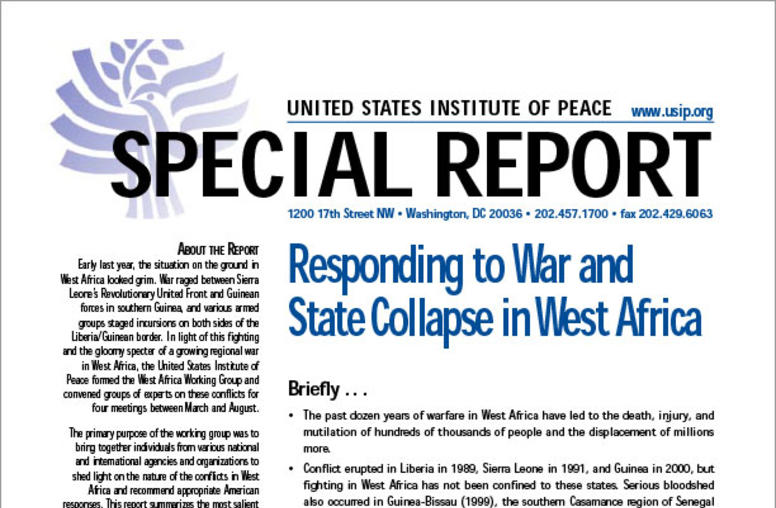
Responding to War and State Collapse in West Africa
Summary The past dozen years of warfare in West Africa have led to the death, injury, and mutilation of hundreds of thousands of people and the displacement of millions more.
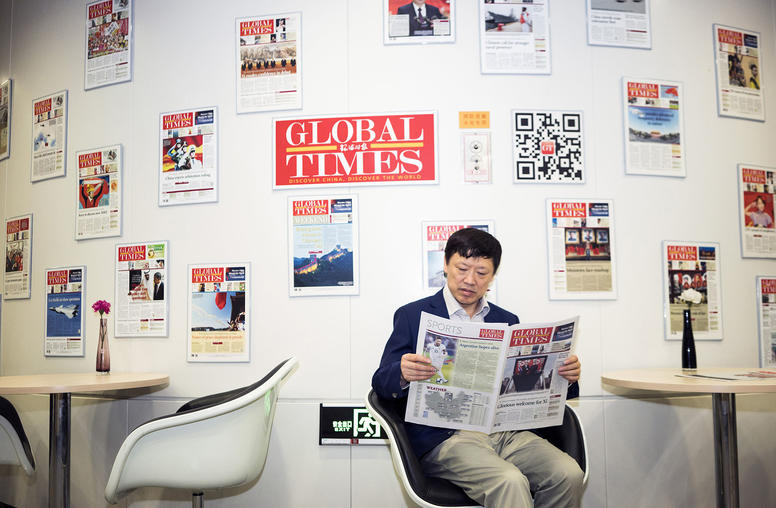
“Sewage of the Cold War”: China’s Expanding Narratives on NATO
Although China’s views on NATO have fluctuated since the early days of the Cold War, Beijing’s recent statements on the alliance have sharpened. This report argues that they amount to a “rhetorical attack” on the alliance’s legitimacy that can potentially undermine trust among its Asia-Pacific partners and, more broadly, confidence in Western ideas of collective security. The report offers recommendations for investments NATO should make in understanding, tracking, and countering Chinese narratives about the alliance.
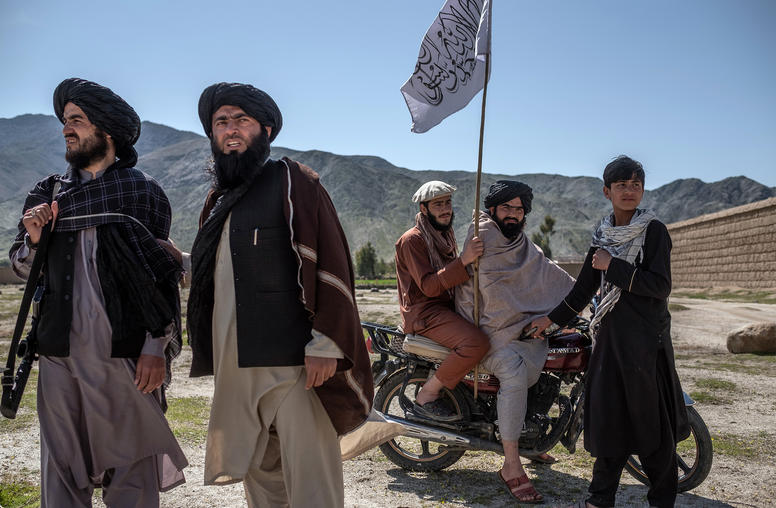
Disengagement and Reconciliation in Conflict-Affected Settings
Even in brutal and desperate conflict settings, it is possible for people to abandon violence and leave violent groups. Peacebuilders know this well—yet terrorism and counterterrorism policies and practices have often neglected practical ways to address participants in violent extremism and failed to provide them opportunities to reject violence. This report examines how peacebuilding tools can help transform the individual attitudes, group relationships, and social ecosystems and structures needed to facilitate the effective disengagement and reconciliation of former members of violent extremist groups.
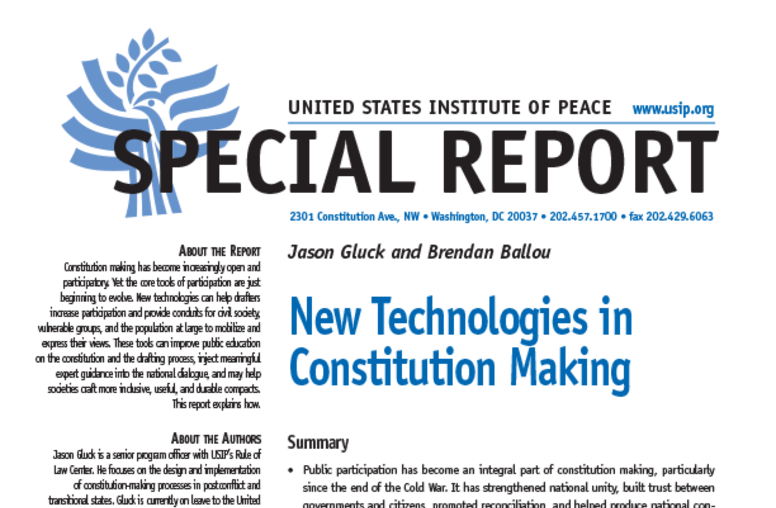
New Technologies for Constitution Making
This report explores the role of new technologies in increasing participation of constitution making. Gluck and Ballou look at how using technology during the constitution-making process can strengthen the trust between citizen and government, build national unity, and promote reconciliation. New technologies—such as the web, including email, Facebook, and Twitter, and mobile phones—are opportunities to engage and educate citizens and build public awareness. Citing examples in Iceland, Ghana,...
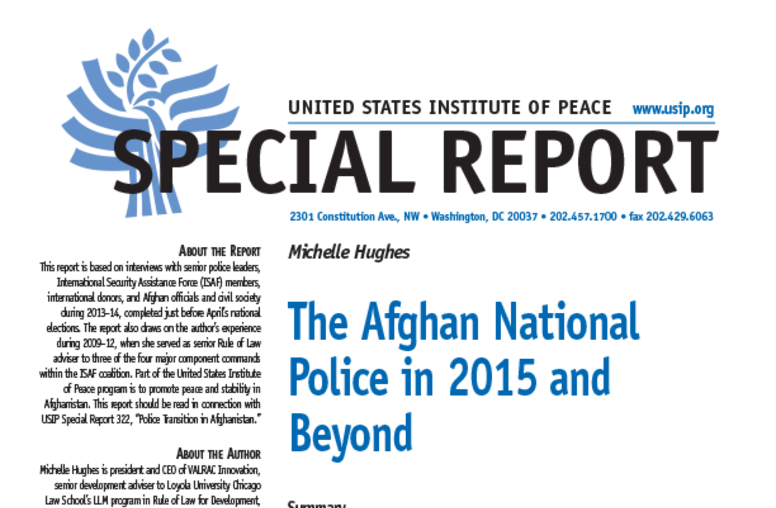
The Afghan National Police in 2015 and Beyond
As Afghanistan shifts from a war footing and coalition forces draw down, the Afghan National Police faces a daunting task. Not only must it shift from military-oriented security operations to true community policing, but it must also fill some considerable gaps in its capacity to manage itself as a civilian-led arm of a democratically elected government. Development is crucial, but for it to have any legitimacy, the impetus must come from the Afghans themselves. At this critical juncture, don...
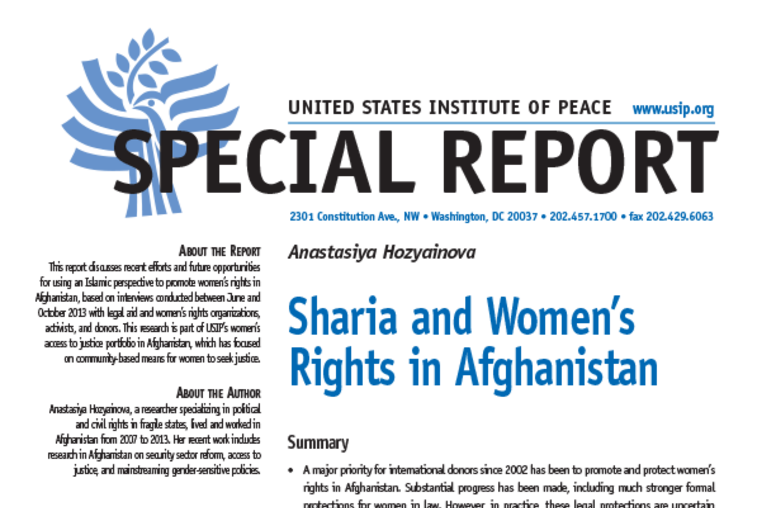
Sharia and Women’s Rights in Afghanistan
Women’s rights in Afghanistan have been supported and championed by Afghan and international advocates and organizations since 2002. Substantial progress has been made, but the women’s rights movement faces an uncertain future in the wake of the 2014 international troop withdrawals.
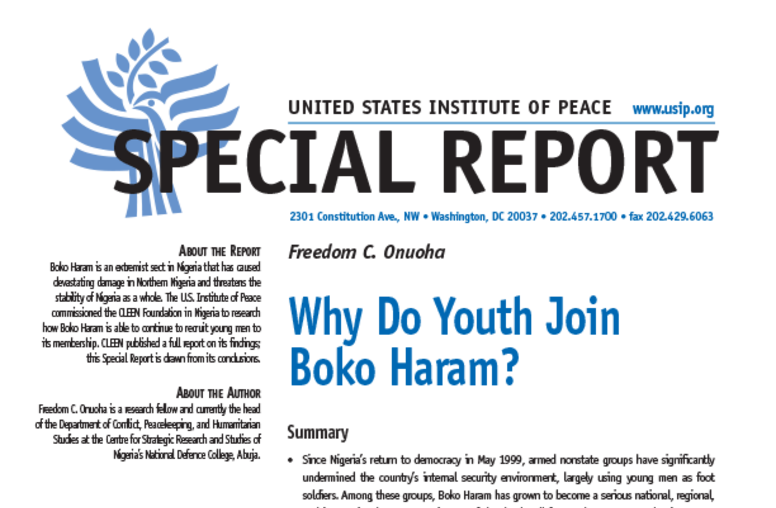
Why Do Youth Join Boko Haram?
Boko Haram’s recent kidnapping of over two hundred schoolgirls in Nigeria has once again brought the group into the international spotlight, making more urgent the questions about how to curtail its activities and the activities of other armed groups that threaten the security of Nigeria and the region. Drawing on the results of a 2013 study in six northern Nigerian states, this report addresses the question of how youth are radicalized and recruited into armed groups and what the Nigerian go...
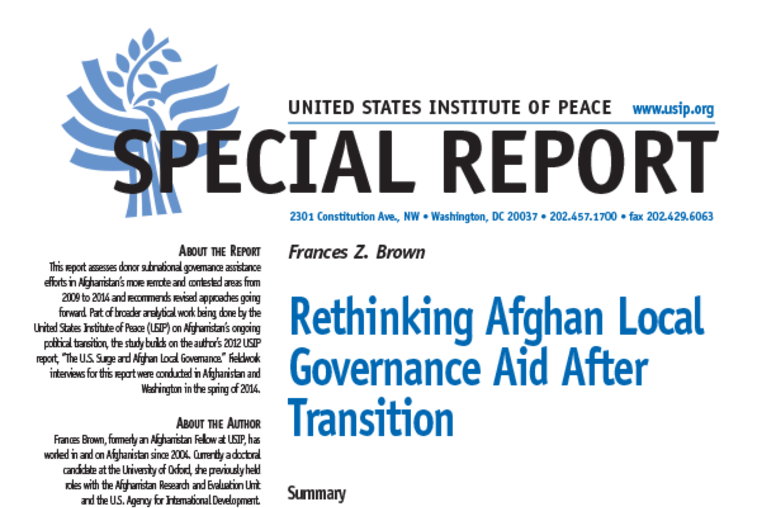
Rethinking Afghan Local Governance Aid After Transition
Thirteen years into the current international campaign in Afghanistan and five years after the U.S.-led military surge of 2009, the drawdown of foreign troops and civilian-military installations is under way. The military struggle and contest for governance between the insurgency and the Kabul government has not been decisively resolved. How aid is delivered to the country’s more remote areas is changing dramatically. It is time for donors to rethink their approaches to local governance and d...
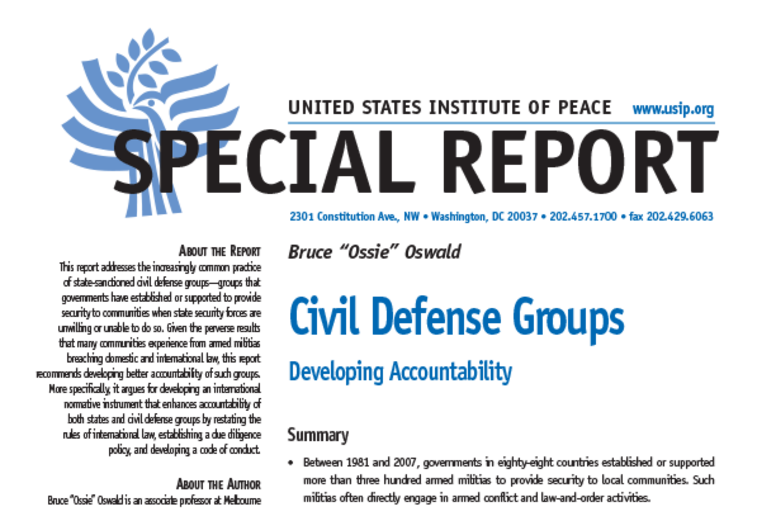
Civil Defense Groups
More than three hundred defense groups provide security to local communities in states around the world. While it is true that such groups can be a resource-efficient means for states to provide law and order to their communities, it is also true that they can worsen security.
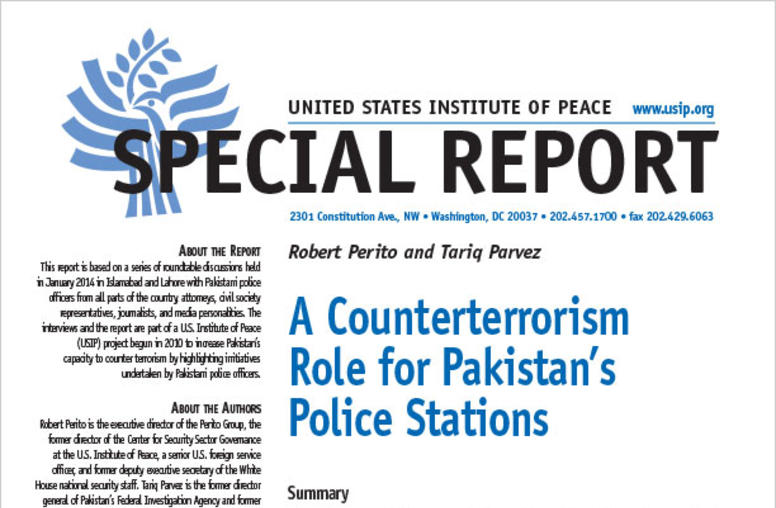
A Counterterrorism Role for Pakistan’s Police Stations
Violence is escalating in Pakistan, both in its megacities and along the border with Afghanistan—from terrorism, to secessionist insurgency, to sectarian conflict, to ethnic turf wars. The police station and the police who staff it, despite their historic role as a symbol of government authority and responsibility for public order, are woefully ill prepared and ill equipped to meet these challenges. This report, part of a project to increase Pakistan’s capacity to combat terrorism, explores t...